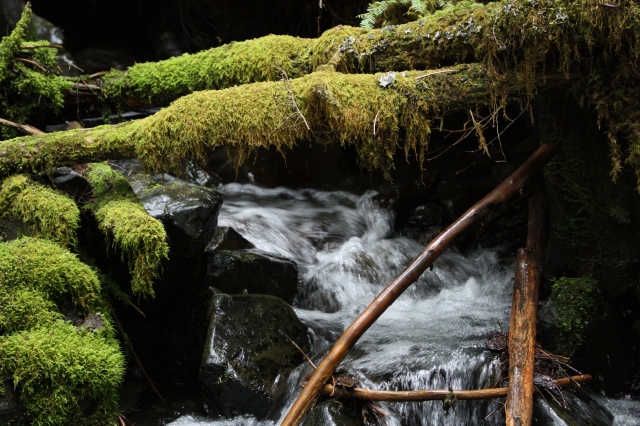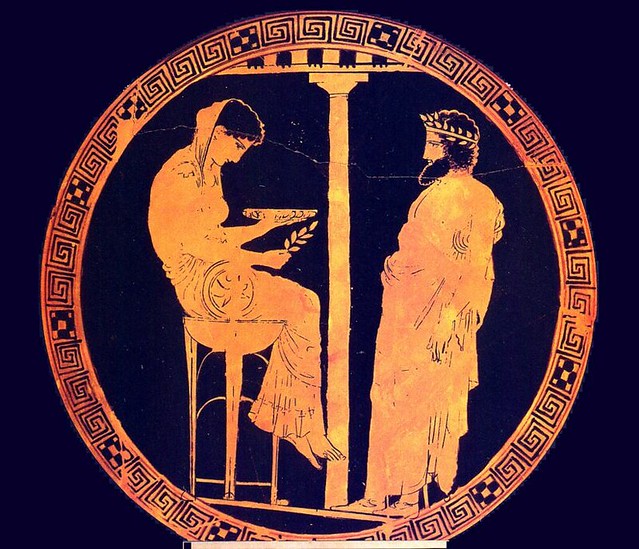My upcoming series of posts is going to be based on three works of C.G. Jung:
1) Psychology and Alchemy, volume 12 of the Collected Works
2) Alchemical Studies, volume 13 of the Collected Works
3) Mysterium Coniunctionis, volume 14 of the Collected Works
The guiding thought for the series, which is not going to be a summary of Jung’s works but rather a collection of various thoughts and a tribute to Jung, comes from Psychology and Alchemy, where Jung states:
“I for my part prefer the precious gift of doubt, for the reason that it does not violate the virginity of things beyond our ken.”
Alchemy, as well as the totality of the psyche (i.e. the conscious and the unconscious), is a sphere of deepest mystery, not explainable by abstract concepts or categories. Alchemy is not an abstraction from life, as its chief premise states that the unconscious is both the fertile ground and the water of life that nourishes all life. The word “alchemy” combines two root meanings etymologically: “land of black earth” (i.e. Egypt) and “that which is poured out” (juice, sap), which means that the word itself spells moisture and fecundity. It seems that by applying too much intellectual rigidity we risk drying alchemy out, stripping it of its pristine mysteriousness. As Jung writes in volume 12, pars 93-94:
“By acknowledging the reality of the psyche and making it a co-determining ethical factor in our lives, we offend against the spirit of convention which for centuries has regulated psychic life from outside by means of institutions as well as by reason. Not that unreasoning instinct rebels of itself against firmly established order; by the strict logic of its own inner laws it is itself of the firmest structure imaginable and, in addition, the creative foundation of all binding order. But just because this foundation is creative, all order which proceeds from it – even in its most ‘divine’ form – is a phase, a stepping stone. Despite appearances to the contrary, the establishment of order and the dissolution of what has been established are at bottom beyond human control. The secret is that only that which can destroy itself is truly alive. …

Painting by Jung from The Red Book: “Watering Hades” with the inscription: “This the holy caster of water. The Cabiri grow out of the flowers which spring from the body of the dragon. Above the temple.”
The water that the mother, the unconscious, pours into the basin belonging to the anima, is an excellent symbol for the living power of the psyche. The old alchemists never tired of devising new and expressive synonyms for this water. They called it aqua nostra, mercurius vivus, argentum vivum, vinum ardens, aqua vitae, succus lunariae, and so on, by which they meant a living being not devoid of substance, as opposed to the rigid immateriality of mind in the abstract. The expression succus lunariae (sap of the moon-plant) refers clearly enough to the nocturnal origin of the water, and aqua nostra, like mercurius vivus, to its earthliness.”

From Theatrum Chemicum Britannicum by Elias Ashmole. (London, 1652). (Photo by Oxford Science Archive/Print Collector/Getty Images), image via http://www.gettyimages.ch/detail/nachrichtenfoto/alchemical-symbolism-1652-a-toad-and-serpent-nachrichtenfoto/463916645?Language=de
The greatest question of alchemy, as it appears to me, is how to live according to the dictates of one’s inner life by tapping into its rich, fertile and dark unconscious roots; how to resist the imposed outside regulations and instead self-regulate from the depths within; finally, how to let go if the order that seemed to have worked for us for some time has stopped being nourishing, and instead has turned into scary, derelict ruins or a haunting dead forest. The need for fluid transformation seems to be the first law of alchemy. Such a transformation does not mean merciless hacking away at the coarse woody debris of our past life, but rather acknowledging that even that which needs to be left behind paradoxically nourishes us, just as the fallen tree logs actually recycle nutrients essential for all living organisms, provide shelter for countless creatures of the forest, and, when placed in streams, provide shelter for fish and a place for turtles to lay their eggs. On slopes, coarse wood debris “stabilizes soils by slowing downslope movement of organic matter and mineral soil“ (source: Wikipedia). Dead trees, just as the dying and crumbling structures of our lives, are a valuable resource that needs to be maintained and protected as a sine qua non of our regeneration.

Support my blog
If you appreciate my writing, consider donating and make my day. Thank you in advance.
$1.00
Jung on Alchemy (6): Sol and Sulphur – the Fiery Ferment of the Soul’s Hidden Depth














Monika
Thank you so much for such a wonderful piece. Reminds me of what I need to keep considering instead of what I need to keep thinking about. Again thank you so much for your work
Jim
LikeLiked by 1 person
Thank you. I am so glad we are in agreement about what is really important.
Best wishes to you.
LikeLike
Greetings, Monika. I appreciate so much about this post — the focus, your writing, the excerpts you chose, and the images as well. Alchemy is a favorite word (though as you know, writers do love and play with words as both vocation and sport, I suspect!), and ‘fecund’ is on my word-play list for my own blog. I appreciate that you included the origin or derivation of the word ‘alchemy’ … knowing the roots can bring a thing, concept or word alive. Thanks for the post. I’ll likely revisit it to read it through again, and I look forward to the others in the series. ~ Jamie
LikeLiked by 1 person
Hello, and thank you for a marvelous comment. I really appreciate it. I do rely heavily on etymology – all the time, actually. And I share your love for “fecund” and “alchemy.”
LikeLike
This is wonderful. Thank you 🙂
LikeLiked by 1 person
Very glad to hear it, Sabrina.
LikeLike
Excellent post, Monika. I look forward to this series!
LikeLike
Thank you!
LikeLike
Reblogged this on lampmagician.
LikeLike
Pingback: Jung on Alchemy (1): The Moist and Earthly Foundation | lampmagician
Really great post Monika, and I agree that our fallen trees provide nourishment.
❤ ❤ ❤
LikeLiked by 1 person
Hi Sindy! I am very glad you liked the post.
LikeLiked by 1 person
🙂 Another terrific post, and an auspicious start to your Jung series !
LikeLiked by 1 person
Thank you. This is an auspicious comment, too. 🙂
LikeLiked by 1 person
I love this post and look forward to the series very much. I especially liked the dead tree/regeneration symbolism, which was synchronistically mentioned in my latest post!
LikeLiked by 1 person
Thank you so much, dear Jean. This is uncanny about our symbolic synchronicity. I had an image of a dead tree in my mind’s eye the whole time while writing this.
LikeLiked by 1 person
“…to live according to the dictates of one’s inner life by tapping into its rich, fertile and dark unconscious roots; how to resist the imposed outside regulations and instead self-regulate from the depths within; …”
One of the many advantages of growing older, and accepting this process, is that one can look back and see defining patterns which have shaped one’s life from the outset. I realise that the above statement sums up the essence of how I have lived mine. Thank you for this affirmation!
I truly appreciate your blog and have just included it in my RSS feed.
LikeLiked by 1 person
Dear Anne, this is so extremely heartwarming to hear. I wish one day I will be able to look back with the same realization.
I so appreciate and cherish your visits.
Monika
LikeLike
Dear Monika,
There is an irony here in that the grounding, and how it feeds us, sometimes is the last thing to be recognized. It’s often much easier to see the feeding that comes from of the loftiness of our ideals.
Alchemy reverses whatever it is we believe to be our normal. It is the art of standing on our heads and seeing the world upside down, and therefore, for many of us, right side up.
The fluid transformation might be the thickening that the salt brings – so necessary for slowing the loose, slippery ideals into a deepening of felt experience. How else will we recognise the bigger picture, how common we can be, and how particular our fate still awaits us?
Forgive me. I could not jump right in and comment upon first reading, but needed to slowly absorb (and still need to do that), precisely, for the mystery that Jung speaks of. How quickly the mind wants to grasp and be done with that mystery as if we could be done with it.
This living out of what calls to us, as it rubs against the abrupt quickness of the world, seems never to be finished. I could hole up, never to make contact with another soul again. Then would my calling truly speak me at last? Could I then hear it? I don’t think so. We’re born as one among many, and as hard as that is sometimes to bear, the more I practice seeing in others what I know to be a common experience, the less I feel taunted by the need to be outside of that. For each of us, ultimately cannot help but to live as humans do, in some in-between state of self and other. There’s no escaping the tension inherent in our existance. I think Jung knew this and wanted us to honor that, yes? Each in our own particularity; our own mode of expression.
Okay, sorry for going on here…
Great post! I am looking forward to your series!
Love,
Debra
LikeLiked by 1 person
Dear Debra,
Thank you. You always confirm and expand on so many of my own thoughts and intuitions (if I can dare to be so presumptuous). Grounding is something I am quite passionately working on right now with the transiting Saturn in my fourth house. I feel like I am going back to basics, trying to get rid of all the unnecessary trimmings. Perhaps I do not say this enough but I really appreciate the deliberateness and rootedness of all your comments, and I always look forward to receiving them. Ah, and the tension between self and other – that is the rub.
Thank you so much for “going on here.”
Love,
Monika
LikeLiked by 1 person
Pingback: WITCH